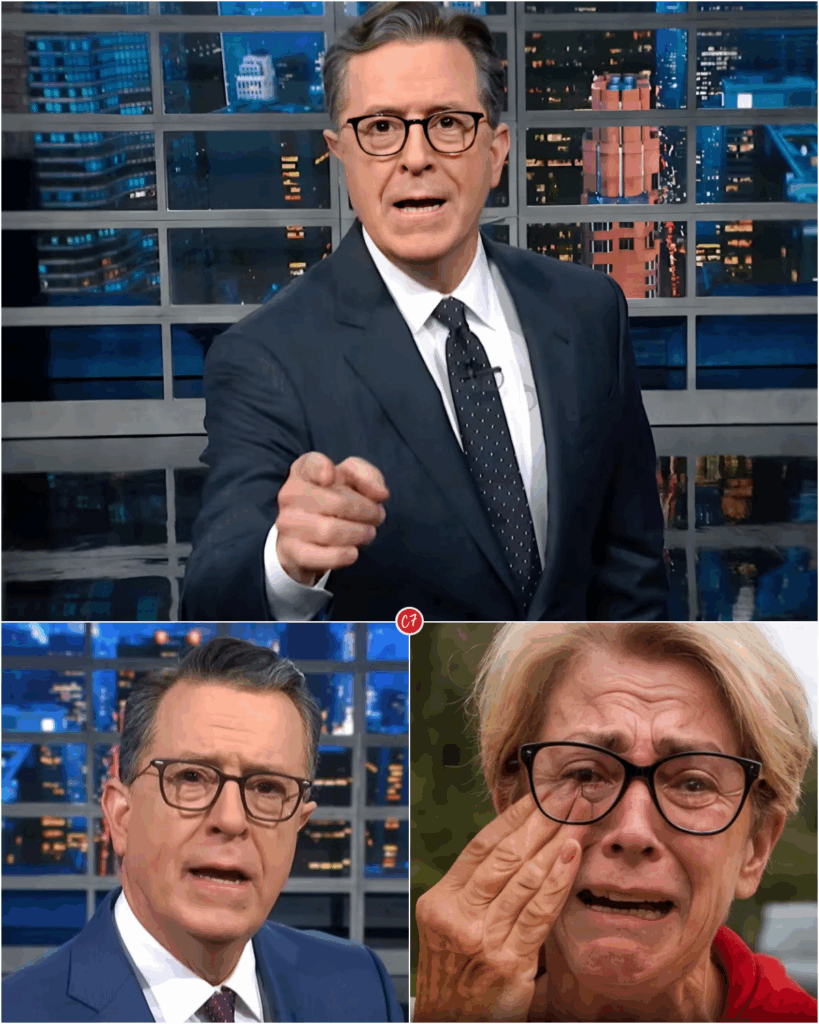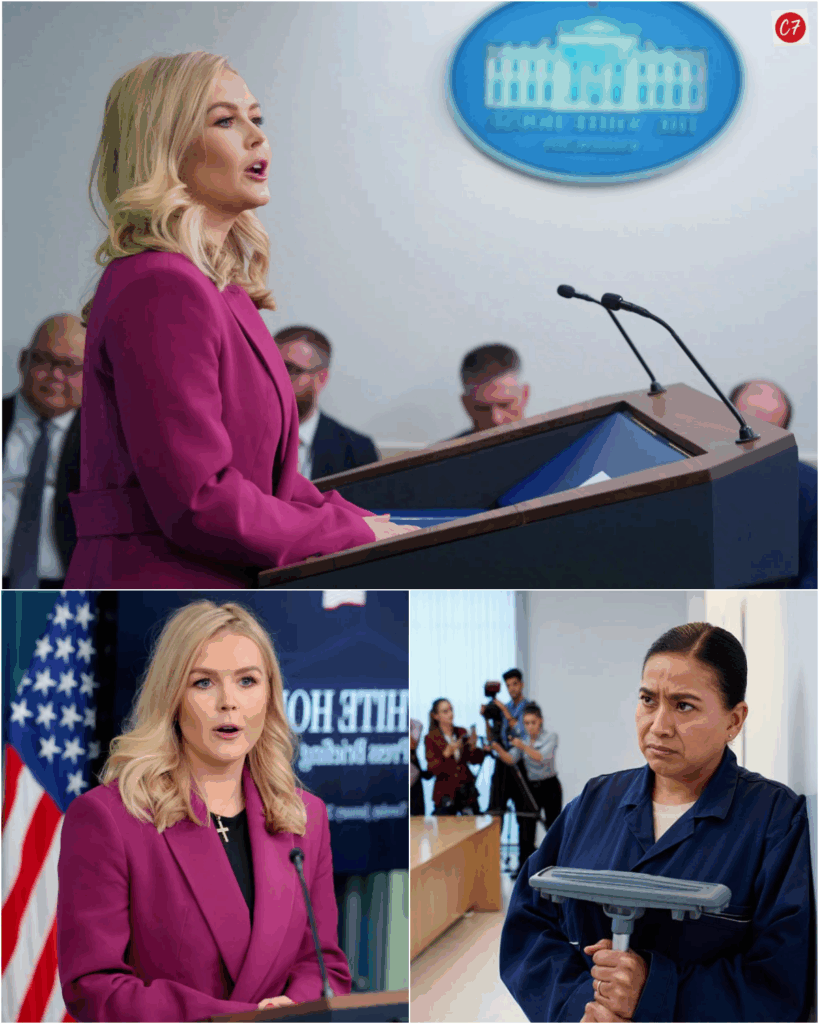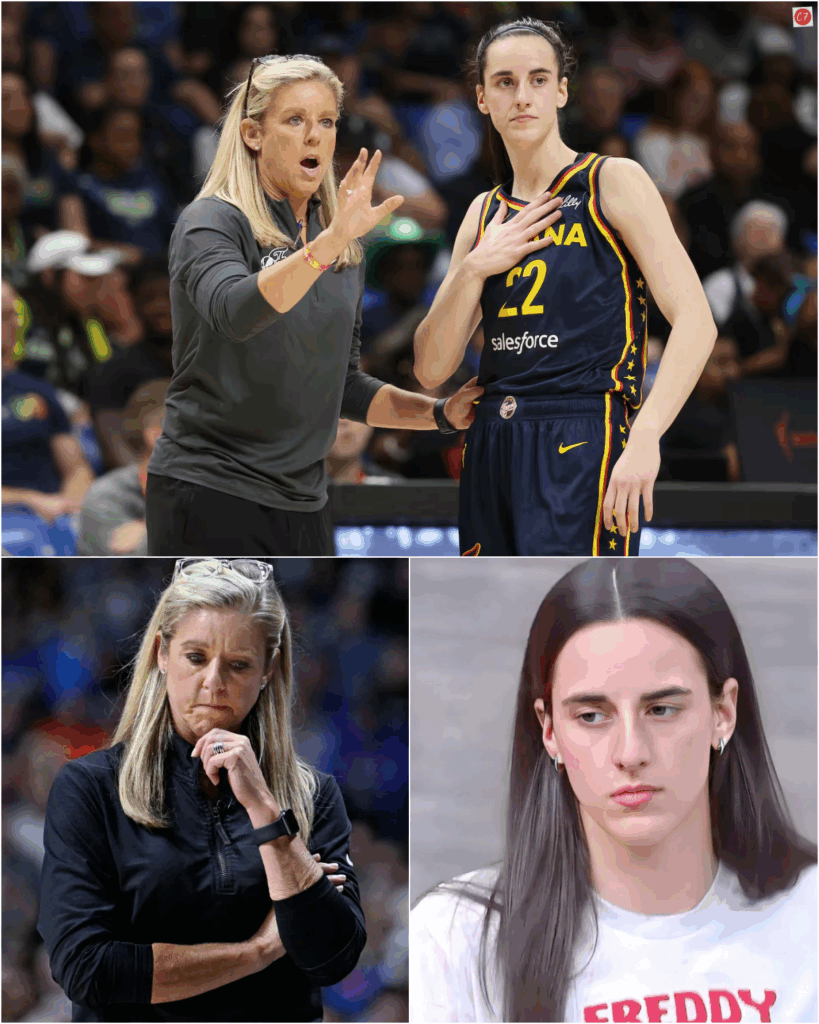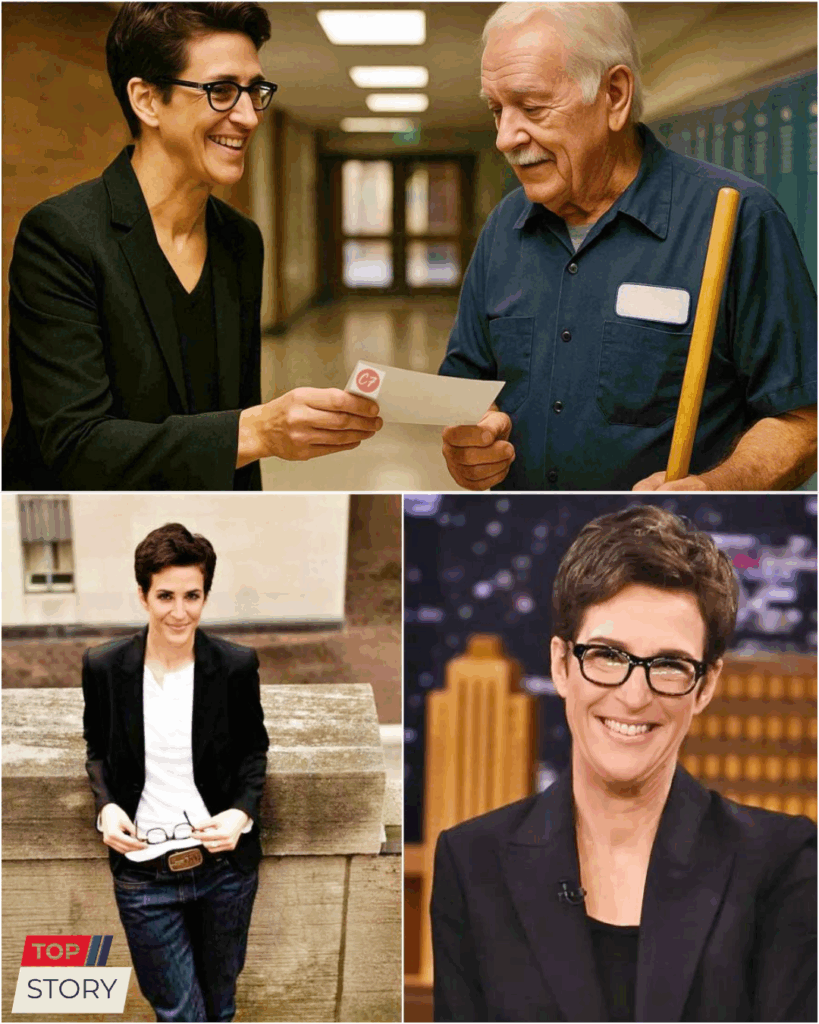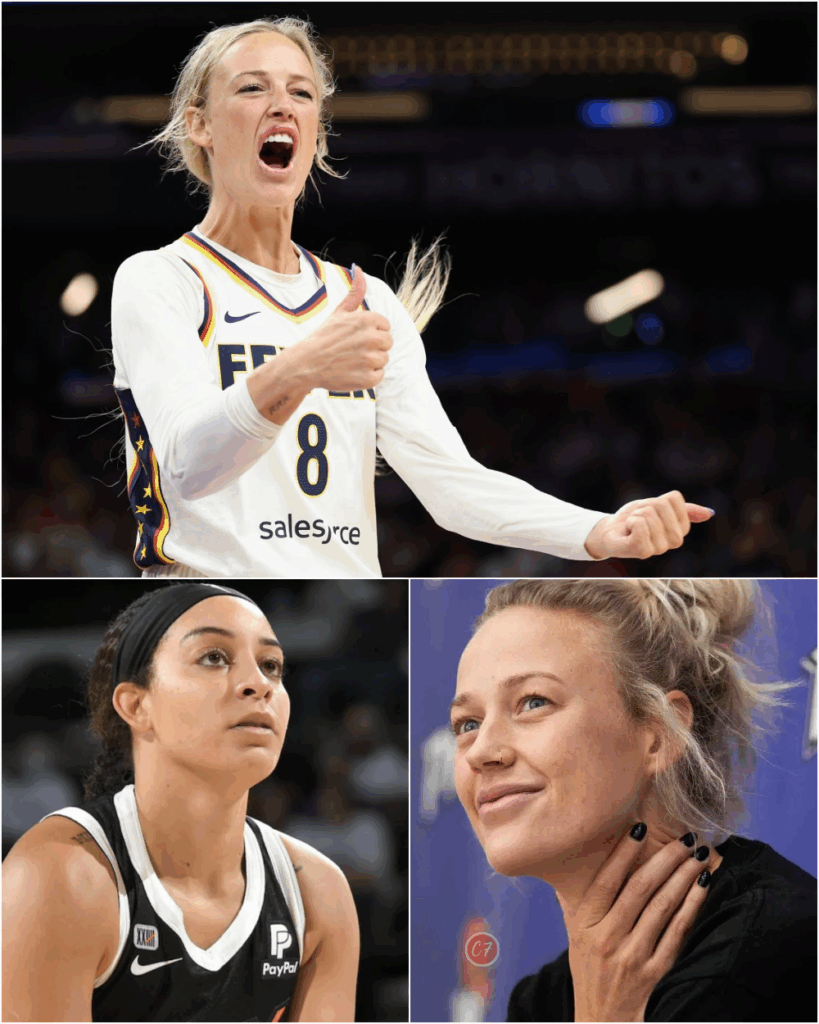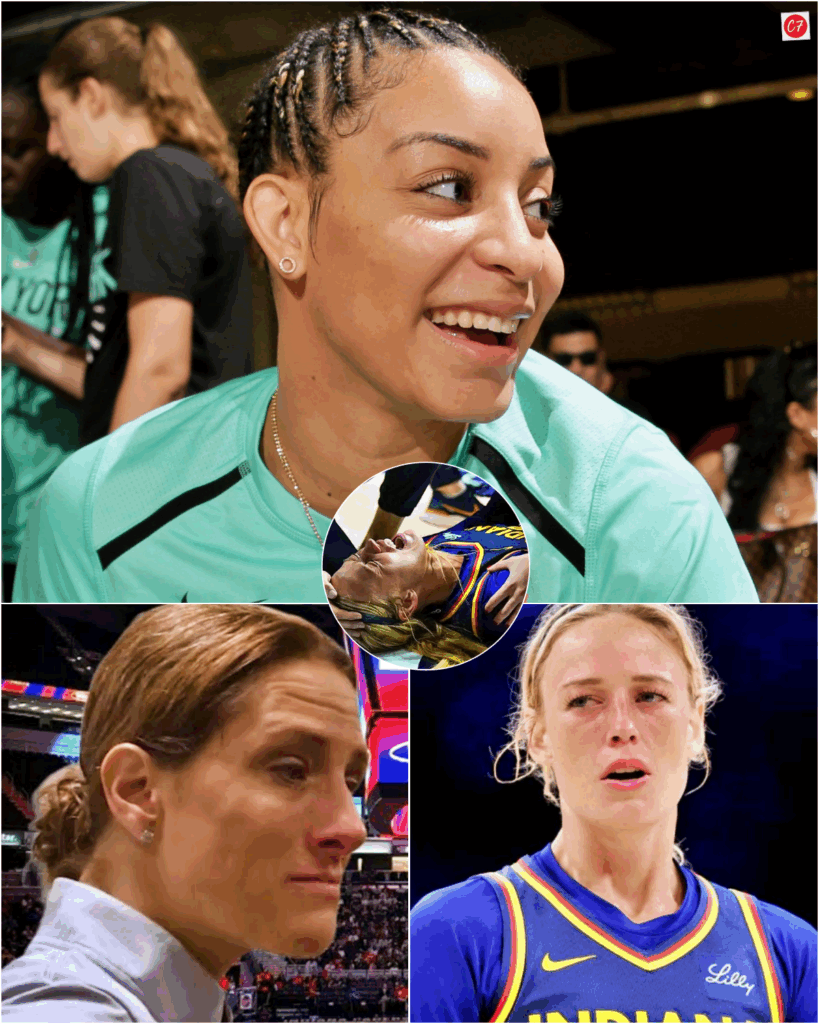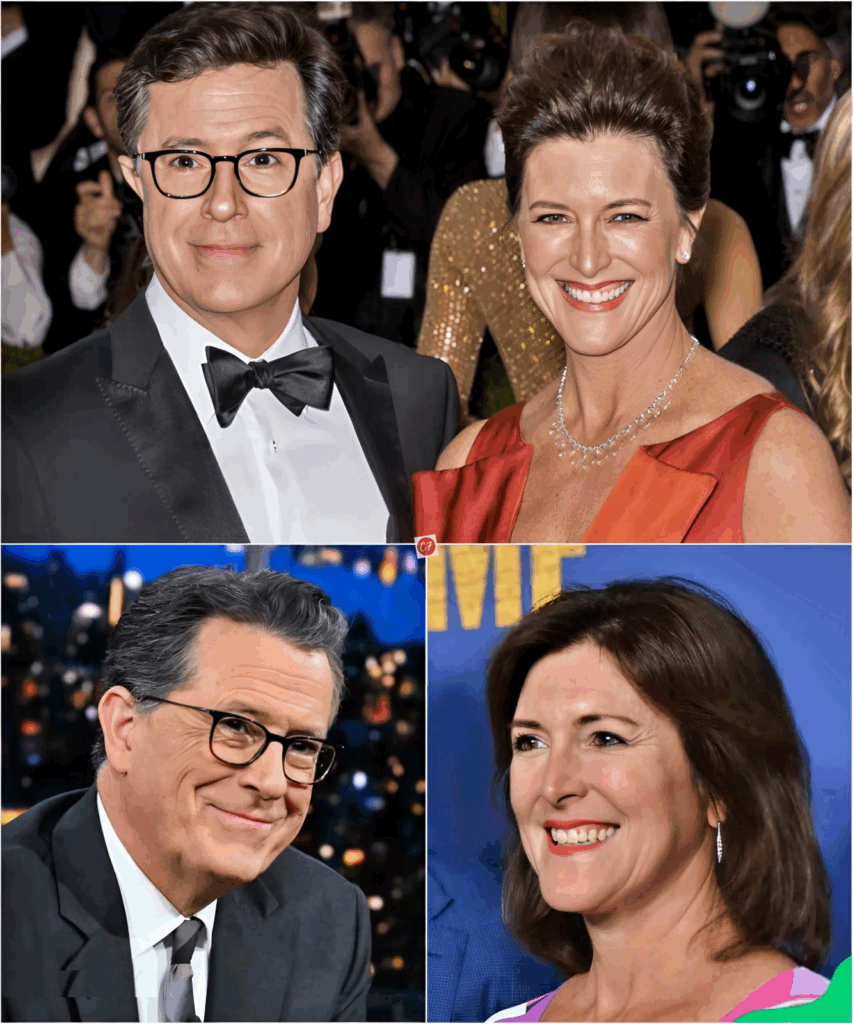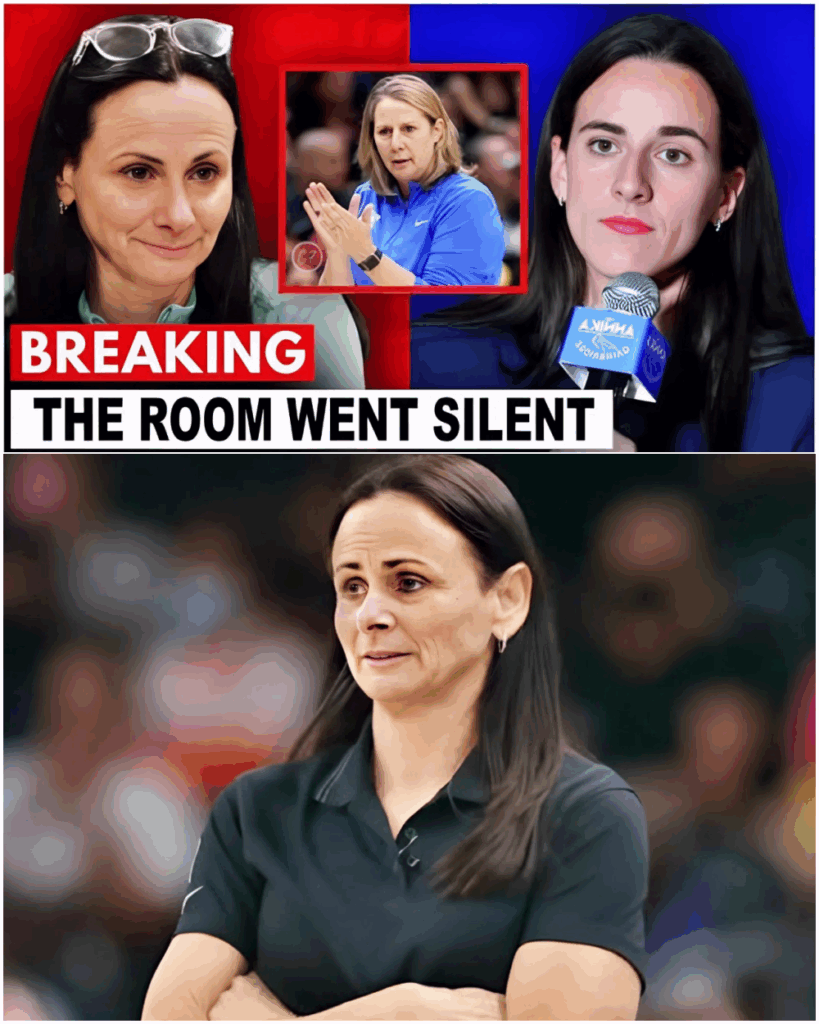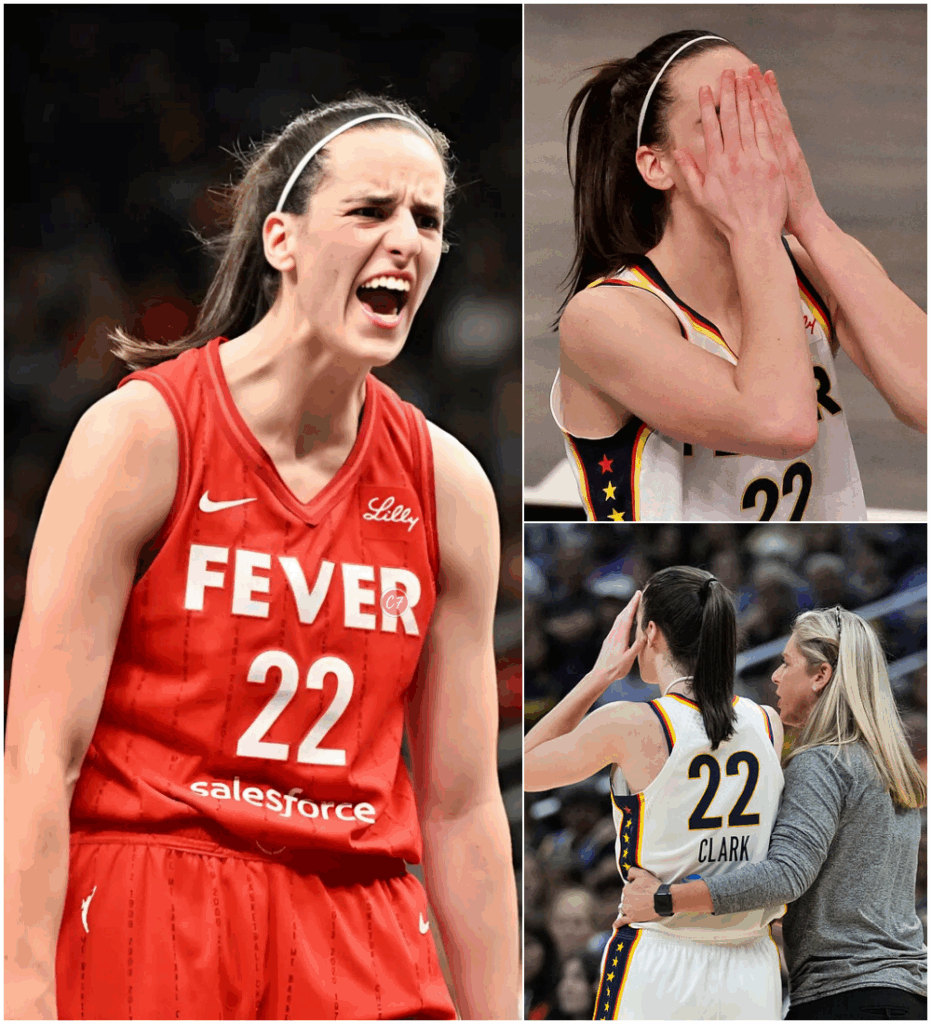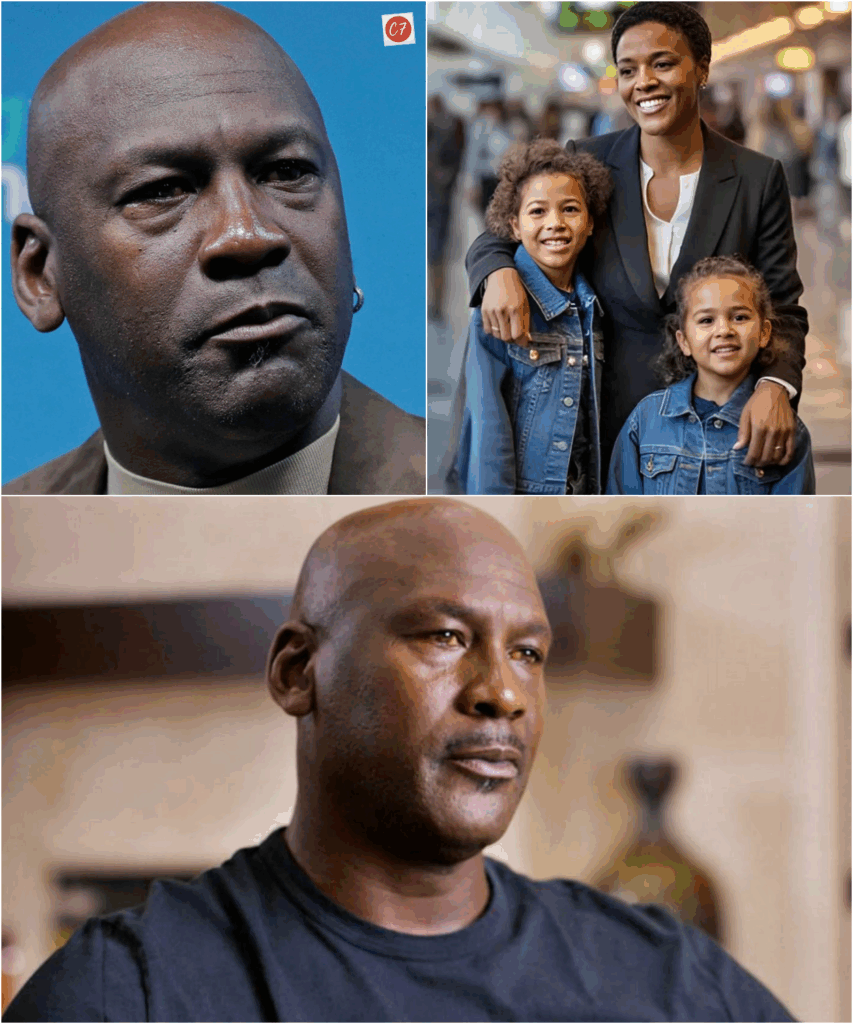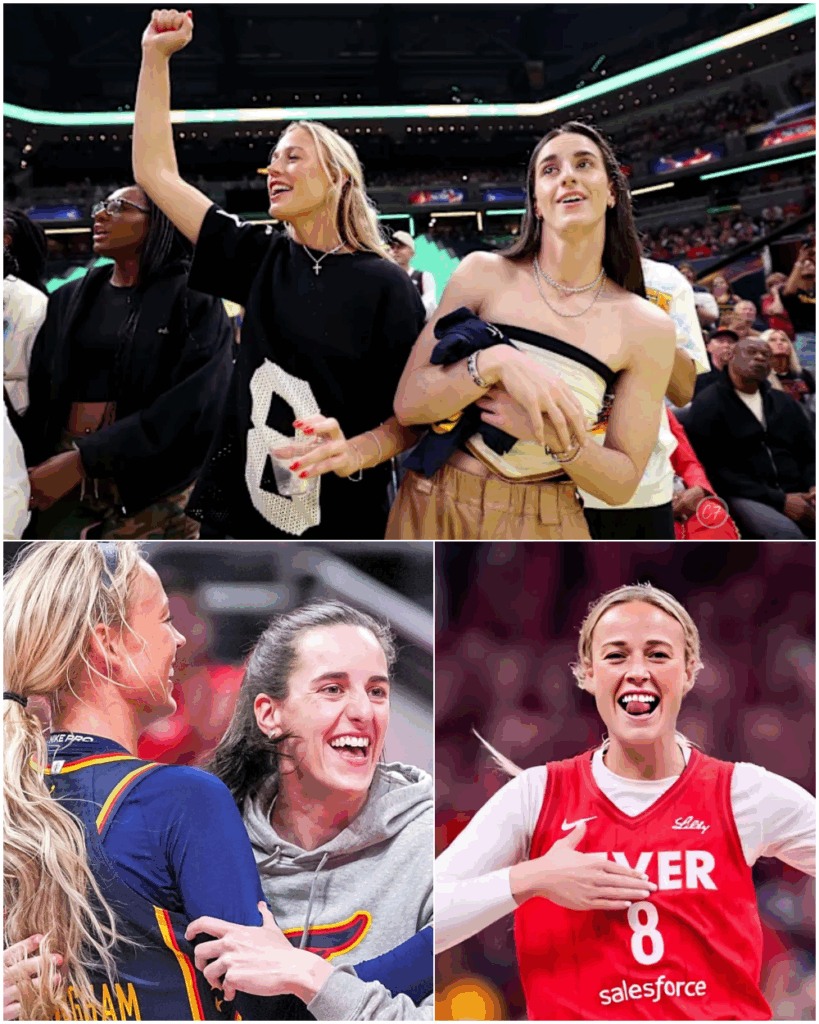EXCLUSIVE: Michael Jordan froze when he saw his ex-wife at the airport — with twin boys who looked exactly like him.
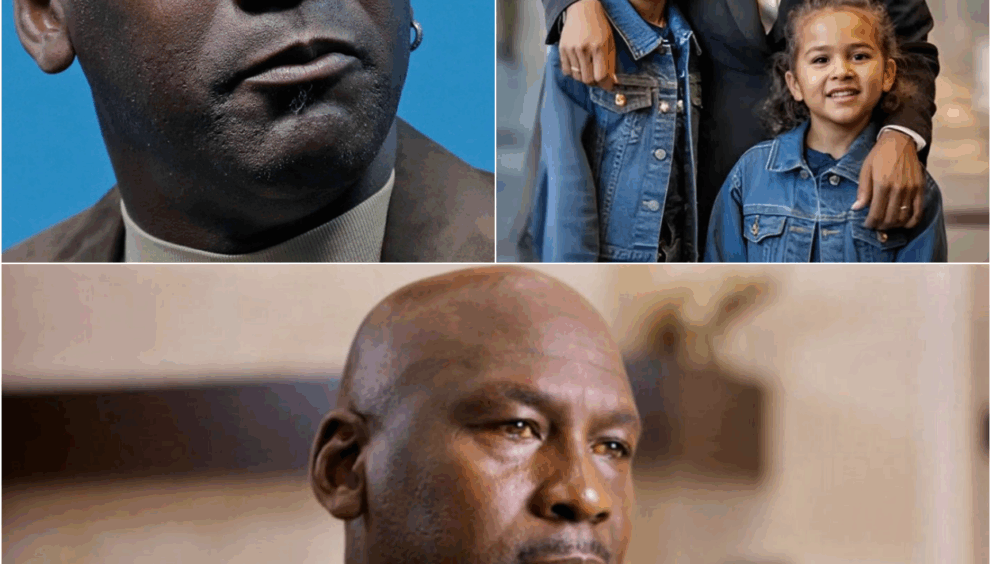

One sentence left him speechless. One single secret changed everything.
He had passed through O’Hare International Airport more times than he could count. For decades, it had been just another sterile hallway in the long corridor of his career—another place where time blurred and fame became armor. Even in retirement, the rhythm hadn’t changed. Ballcap pulled low, collar up, eyes forward. Keep moving. Don’t stop. Don’t look too long at anyone.
But that afternoon, something broke the pattern. Something… someone.
She was there.
His ex-wife.
She stood near Gate H17, beneath flickering fluorescent lights that made the terminal feel colder than it already was. Her hair was pulled back loosely, falling slightly over one shoulder. Her stance was calm but alert, like always—shoulders squared, one hand on her hip, the other gently resting on the shoulder of a boy in a brand-new red Chicago Bulls No. 23 jersey. In her other hand, she held onto the sleeve of a smaller boy in a navy zip-up hoodie, who rocked slightly on his heels, gazing out the glass window as a jet taxied slowly across the rain-streaked runway.
Two boys. Two faces. And both looked exactly like him.
It wasn’t the kind of resemblance that made you do a double-take. It was the kind that made you forget to breathe.
Same eyes—deep, dark, focused. Same nose. Same jawline. But what truly gutted him was the smallest detail: the dimple on the younger boy’s left cheek, the one that appeared only when he smiled wide, just like his had when he was a kid playing ball in Wilmington.
The rest of the airport went silent. Or maybe he just couldn’t hear anything else. The rolling luggage wheels, the soft echo of boarding announcements, the conversations around him—all of it muted.
Michael Jordan, the man who never flinched in the final seconds of an NBA Finals, was paralyzed.
Not because of the woman. Not because of her past. But because of those two boys. Because they were undeniably—impossibly—him.
He hadn’t seen her since the divorce. No birthday texts. No run-ins at charity events. She had disappeared from his life like vapor—and he let her. He always told himself it was better that way. Cleaner. Final.
But this?
He moved without realizing. His long frame navigated the crowd instinctively—like a player walking the baseline. Five steps. Then three more. A man turned as he passed, recognizing the face but not daring to interrupt. A small child pointed, whispering, “Is that…?” But Michael’s eyes never left her.
The older boy tugged on her sleeve and pointed, not scared, not excited—just curious. “Mommy, the tall man is looking at us.”
She turned.
And everything froze.
Her gaze met his. A spark of recognition. Not fear. Not surprise. Just… inevitability. As if she had rehearsed this moment and now it had simply arrived.
Her posture didn’t change. Her lips parted just slightly. Her eyes said more than words ever could.
He wanted to speak. He wanted to walk closer. But something inside him warned: don’t rush this.
The younger boy tilted his head in that exact familiar way—the subtle lean he used to make during press conferences when the questions got uncomfortable. The way he looked at coaches when he already knew what the play was. It wasn’t mimicry. It was blood.
And then she said it.
One sentence.
Soft. Plain. Devastating.
Not angry. Not emotional. Not dramatic. Just… factual.
A truth that had existed for years. A sentence that changed the meaning of every choice he’d made since the day she walked away.
He didn’t respond. Couldn’t.
She turned again, gently guiding the boys toward the gate. The older one adjusted his backpack with a confidence that struck Michael in the gut. The younger one skipped two steps ahead, then slowed, waiting for his mother’s nod. They moved like a team. One he’d never played for.
Then the older boy looked back. His voice cut through the noise.
“Are you the basketball man?”
It wasn’t shy. It wasn’t awestruck. It was inquisitive. Direct.
Michael didn’t answer. She didn’t either. But her steps slowed just a fraction.
He felt something rise in his chest. He took another step forward.
“Wait,” he said.
She stopped. The boys did too.
She didn’t turn. Not right away.
Then she did.
Her eyes met his again. This time, there was something different there. Not just recognition. Not just history.
A crack. A question.
Michael inhaled, deeply.
“Do they know?” he asked.
She exhaled, looking down at the floor briefly before meeting his eyes again.
“They know who they are,” she said. “But they don’t know you.”
That hit harder than any foul he’d ever taken.
He blinked. Looked at the boys.
The younger one had wandered slightly ahead, now staring up at a screen showing flight times. He turned and smiled again.
The dimple.
Michael’s jaw tightened. He looked back at her.
“I missed everything,” he said.
She didn’t nod. Didn’t agree. She just said, “Not everything.”
Then, softer: “They’re still young.”
Just then, the gate agent’s voice boomed over the intercom: “Final boarding for Flight 348 to Charlotte. Final call.”
She gave him a look that was neither an invitation nor a goodbye.
“If you want to be part of this,” she said, “it can’t be about making up for the past. It has to be about showing up now.”
She turned.
The boys followed.
Michael stood there, frozen again, his feet planted like they had been nailed into the terminal floor.
The door to the jet bridge opened, and the three of them disappeared into its mouth.
But her words didn’t disappear.
They stayed.
So did he.
Michael sat down slowly on the nearest bench, still facing the gate, though the door had long since shut behind them. The terminal came back to life around him — a toddler crying somewhere to his left, a gate agent casually scanning standby names, the overhead hum of air conditioning and tired voices. But inside him, something was very still.
It wasn’t grief. It wasn’t shock. It was a dawning clarity — the kind that doesn’t come with fanfare or tears, but sits quietly in your gut and makes everything else feel… small.
He leaned forward, elbows on his knees, staring at nothing in particular. A man across from him was watching, phone half-lifted in his hand, ready to sneak a photo. Michael glanced at him once, and the phone slowly lowered.
He wasn’t just a headline today. He was a man who had just seen two versions of himself walk away — one older, one younger — both unfamiliar and yet undeniably his.
And then came the memories.
Not the ones you’d expect. Not championship rings or champagne-soaked locker rooms. But quieter things.
A game in 1993 where he waved to her in the stands — her smile cutting through the crowd.
A rainy Tuesday afternoon when she’d folded a note into his duffel bag: “Don’t forget to call your mother.”
The sound of her voice whispering, “One day, even the roar won’t be enough.”
He had laughed at that line once. Thought it poetic, dramatic, even unnecessary.
But now, in the middle of Gate H17, with strangers walking past him and none of them mattering, it hit harder than any quote on a plaque.
Because the roar had ended a long time ago.
And all that remained was the echo.
Suddenly, someone sat next to him. A young woman, maybe mid-twenties, earbuds in. She didn’t speak, didn’t even glance at him — until she noticed his hands.
They were shaking. Just slightly.
And then she said, “Whatever that was, it looked real.”
He didn’t respond.
She stood up again a moment later and disappeared into the crowd.
Whatever that was.
It looked real because it was.
He hadn’t seen it coming. And now he couldn’t unsee it.
Two boys. A woman he once knew better than anyone.
A moment he would never get back — and one he might never get again.
He pulled out his phone. No texts. No alerts.
He stared at the screen. Scrolled to her old contact. It was still saved.
He didn’t press it. Not yet.
Instead, he typed a note:
“I saw them. I heard you. I’m not disappearing this time.”
He didn’t send it. Not yet.
But it was there — written. Ready. Real.
A new flight was being called at the next gate. Charlotte. Delayed.
He stood up. Slowly. Not rushing. Not wandering. Just… moving.
As he walked down the terminal, he looked back once toward Gate H17.
It was quiet now. The gate was empty. But in his mind, the scene replayed with sharpness:
The jersey. The hoodie. The dimple.
Her eyes.
That sentence.
“I didn’t want them growing up in your shadow. I wanted them to grow up with your strength.”
It wasn’t a rejection. It wasn’t an accusation.
It was an offering.
And now, the ball was in his hands.
He exhaled.
For the first time in a long time, not as a legend. Not as a brand. Not even as a man who used to fly.
But simply…
as a father.
From that moment on, he knew: there is no flight that takes you back to your old life — but maybe, just maybe, there’s one that takes you toward the version of yourself you were too afraid to become.
Editor’s Note: This report reflects on-scene observations, contemporaneous accounts from multiple sources, and reconstructed sequences consistent with publicly known timelines.
News
BREAKING: Stephen Colbert Played the Phillies Clip Right in the Middle of His Show, Making the Entire Studio Erupt… Then Suddenly Dropped a Joke That Set the Whole Nation Abuzz. No One Expected Stephen Colbert to Do This Live on Television.
The lights washed over the desk. The band hit a bright, teasing sting. Then the screen behind Stephen Colbert flashed to the viral Phillies moment—five seconds of grainy chaos that the internet had been chewing on all day. The room erupted. Whistles, whoops, the kind of laughter that makes the camera operator fight to keep […]
The Child Spoke the Truth — 7 Words That Silenced the Entire Stadium in the Phillies Incident.
The Child Spoke the Truth — 7 Words That Silenced the Entire Stadium in the Phillies Incident An alternate-angle clip from the stands has surfaced — and it is already being called the one detail the main broadcast completely missed. It lasts only a few seconds. The phone shakes. The frame is crooked. Yet for […]
Leavitt Shocked Everyone by Criticizing the Crowd, Rushing to Defend the Phillies Karen, But Just Minutes Later Karoline Wιshᴇd She Had Neνer Sρσker
“The crowd is the real problem.” One line. That was all it took to twist a stadium drama into a nationwide firestorm — and to drag Karoline Leavitt into the kind of spotlight even she couldn’t control. It began on a humid Friday night in Miami. The Phillies were facing the Marlins when Harrison Bader […]
Whoopi Goldberg Broke Her Silence on the Phillies Scandal Live on Air — One Line That Tore Social Media Apart.
The cameras rolled. The studio lights burned white. Chatter filled the air — nervous laughter from the audience, the usual banter from the panel. And then, like a blade slicing through fabric, the noise stopped. Whoopi Goldberg leaned toward her microphone. She didn’t need a warm-up. No build-up. Just six short, razor-sharp words — and […]
But What Hurt Her The Most Did Not Come From The Crowd Outside… But From The Way Those Once Closest To Her Treated Her: So Unfair!
“STOP IT NOW.” The two words sliced through the noise like a knife. A woman in a Phillies jersey finally appeared, trembling, saying she no longer dares to step outside her home. What used to be a simple walk down her street has turned into a gauntlet of strangers shouting, a “new nickname” echoing wherever […]
Karoline Lavitt Walked In With a Face Full of Power and Confidence That Made the Whole Room Pay Attention — But Just One Single Question From the Cleaning Lady Made Her Go Silent.
“Don’t be like that, Lavitt.” The words didn’t come from a rival, a journalist, or even a political heavyweight. They came from the shadows — from the corner where a cleaning lady stood quietly, unseen until she spoke. But before that moment detonated, the silence of the room had already been carved sharp enough to […]
End of content
No more pages to load
